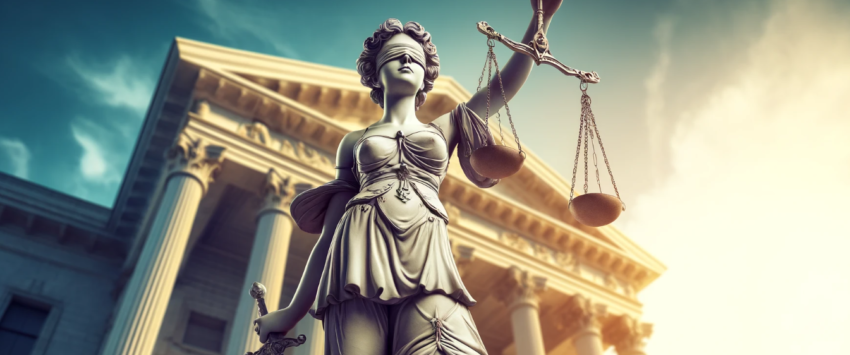| Listen to our audio presentation: Global Nuclear Proliferation |
On Tuesday, the courtroom drama in Donald Trump’s hush-money trial hit a fever pitch as lawyers for both sides presented their closing arguments to a jury tasked with deciding whether the former president is guilty of falsifying business records in connection to a payment made to Stormy Daniels in 2016.
The defense, led by Todd Blanche, launched a scathing attack on Trump’s former lawyer and key witness, Michael Cohen, who facilitated the controversial payment. Blanche argued that Cohen’s testimony was riddled with lies, dubbing him the “greatest liar of all time.”
“Michael Cohen is the GLOAT. He’s literally the greatest liar of all time,” Blanche claimed, attempting to cast doubt on the prosecution’s reliance on Cohen’s statements. He reminded the jury of Cohen’s past criminal behavior, including his conviction for lying under oath and embezzlement, suggesting that he now harbors a vendetta against Trump.
Trump, throughout the prosecution and defense counsel’s presentations, sat composed, occasionally swiveling in his chair and closing his eyes, as Cohen’s credibility was eviscerated.
From the prosecution’s side, Joshua Steinglass delivered a meticulous, nearly four-hour closing argument that sought to fortify the case against Trump. Steinglass presented a narrative of conspiracy and cover-up, emphasizing that Trump’s alleged actions were an attempt to unlawfully influence the 2016 election.
“In the interest of justice, and in the name of the people of the state of New York, I ask you to find the defendant guilty,” Steinglass urged the jury as he wrapped up his detailed summation of the evidence. Highlighting the impartiality of the law, he stated, “Donald Trump can’t shoot someone on 5th Avenue during rush hour and get away with it,” though the judge quickly sustained an objection against the graphic analogy.
The crux of the prosecution’s case revolves around Trump allegedly falsifying business records to categorize the $130,000 payment to Daniels as legal fees when reimbursing Cohen. They argue that this misrepresentation was executed with the intent to deceive the public and sway the election in Trump’s favor.
However, the defense has consistently argued that Trump did not intend to commit any crime. They leveraged Cohen’s tarnished facade to seed doubt about the integrity of the allegations levied against Trump.
“Michael Cohen’s testimony is a tour guide through a mountain of evidence, but not a reliable one,” Steinglass acknowledged. He said the jury should scrutinize Cohen’s checkered past but also appreciate the corroborating documents and other witness testimonies that scaffold the accusations.
Legal analysts following the trial have expressed mixed opinions on the difficulty of the case. Some believe it will be a challenging endeavor to prove that Trump falsified records with an intent to cover up another crime, particularly given the complications surrounding Cohen’s credibility as a witness.
Andrew Napolitano, retired New Jersey Superior Court Judge, provided a unique insight to Newsmax. He pointed out that jurors do not necessarily need to unanimously agree on the specific crime Trump intended to cover up, but they must unanimously concur that there was indeed an underlying crime behind the hush-money payment.
“Here’s the crazy thing about this statute: You could have half the jury believing the underlying crime was an illegal campaign contribution and half believing it was tax fraud. As long as 12 of them agree a crime was concealed, they can convict,” he explained.
As the jury ponders over the testimonies, a quick unanimous verdict may indicate a not guilty decision, while longer deliberation could denote internal divisions or a painstakingly thorough review of the evidence.
Now, the weight of the decision rests on the 12 New York jurors who must unanimously decide to convict or acquit Trump. Should they fail to reach a consensus, the trial could result in a mistrial, leading to further legal proceedings.
The trial has undeniably been a media spectacle, with ramifications that could ripple through the political landscape as the 2024 election cycle heats up. Trump continues to deny any affair with Daniels and maintains his innocence on all charges.
As the days unfold, the nation watches closely, awaiting a verdict that could set a historic precedent, given Trump’s unique position as a former president and a presumptive Republican nominee for the upcoming presidential election.
Information Box:
Donald Trump stands accused of falsifying business records in relation to a $130,000 hush-money payment to Stormy Daniels during his 2016 campaign. This trial marks the first time a former U.S. president has faced criminal charges. Key witness Michael Cohen, once Trump’s trusted lawyer, has a criminal past, adding a complex layer to the proceedings.
Reference 1: NBC – Story by Adam Reiss, Gary Grumbach, Jillian Frankel, Dareh Gregorian, Jonathan Allen, and Lisa Rubin
Reference 2: BBC – Madeline Halpert and Kayla Epstein
Reference 3: Newsmax – Nicole Wells
Reference 4: CNN – Kara Scannell, Lauren Del Valle, Jeremy Herb

